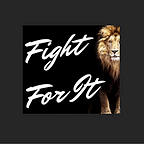Social triggers, especially the ones that really suck, may act as clues to self-understanding, maturity, and improved life satisfaction/experience. They provide the path to healing old forgotten wounds, like insecurity, trauma, neglect, and fear. They can be the most powerful tools in our tool belt for life
TL/DR — While getting triggered and having a strong negative response is not fun and can cause a lot of suffering, having a curious and positive attitudes towards our triggers and why we respond in certain ways can help us understand ourselves and can be the first big step towards modifying our responses to triggers to be more helpful in the future.
All of us have triggers and we all get triggered.
It’s a fact of life like suffering, death, and taxes.
Some folks seem to not get triggered at all or handle being triggered pretty well. This post is not for them.
Those of us who are most negatively affected by getting triggered (usually from factors outside of our control) may feel a sense of hopelessness, shame, and resignation. We walk around with labels like “short fuse” or “hot headed” that are given by others and/or ourselves.
However, another fact of life is that our attitude dictates our experiences, and this can be under our control. Attitude has to do with how we ascribe meaning/thinking/feeling to persons/memories/things/events that may cause us suffering.
Attitude and meaning can be under our control, but most of the times it isn’t, because we get lost in habitual responses to triggers that don’t require much thought, much like a knee-jerk reflex.
The “trick” is, after the trigger event has passed and we are calm, we can start to be curious about why the trigger is there and be fully accountable to our attitudes (thoughts/feelings/behaviors) while in a triggered state.
Most of us don’t like to dwell on trigger events, but this isn’t dwelling, it is our attempt to shed light in areas of our life that we keep in darkness.
If we strongly desire to modify our response to being triggered, we can start with being very curious about our triggers and responses to triggers.
It takes much practice to do this in a non-judgmental manner (meaning not passing judgement on ourselves for the way we get triggered and respond, while simultaneously not passing judgement on the persons, things, memories, or events that trigger us).
Understanding why we get triggered and taking accountability for our thoughts/feelings/behaviors (our attitudes) in response to being triggered will lead to more understanding of ourselves…
An example is….
“I honked, screamed, and flicked that driver who cut me off because I was bullied and taken advantage of as a kid and developed a strong response whenever I feel injustice, which became a strong negative habit. I should not allow my sense of powerlessness in the past dictate how I treat others in the present or future, especially since the other driver might have a gun, and my life is not worth ending because of how I behaved in a road rage episode”.
It’s much easier to just think the other driver is a jerk, and never learn about parts of us that still hurt and needs our understanding and self-compassion to start to heal.
Having a positive and helpful attitude towards towards the many triggers out there can really help improve our habitual negative responses, and in turn, can help improve our self-esteem, confidence, peace, and life satisfaction.
Thanks for reading this essay ya’ll
